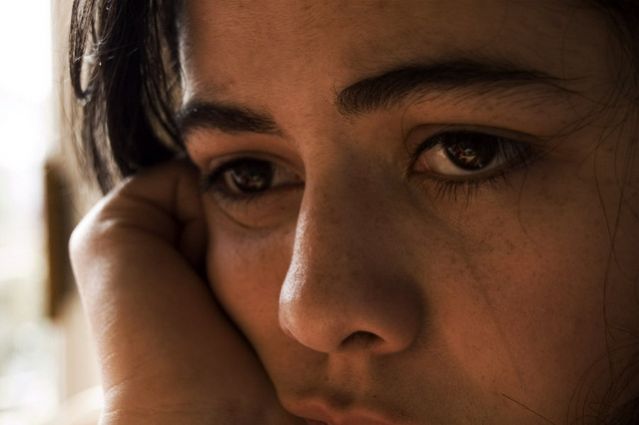Identity
The Self-Loather's Worst Fear: Is Self-Image Set for Life?
Is there a fixed aspect to the way we see ourselves that cannnot be changed?
Posted September 24, 2015

Just a short thought on self-loathing, inspired by a comment on a previous post,
"Do the Self-Loathing See the Same 'Self' that Others Do?" Here's an excerpt from the comment:
I never thought I was self-loathing. People have ALWAYS told me that I am hard on myself; that I am harder on myself than any other person they know. My boyfriend of 3 years told me that too. He said he is very hard on himself, but I am the worst judge of myself.
I am blessed because I try hard to trust the good feedback I get in my life. I think I'm ugly, disgusting, and live in a pigsty.
...
I can try to trust those good friends and people in my life. It's really hard to. The bottom line is that I have to get to a point where I am sick of beating myself up. I have to muster up some sort of candor with myself to boost myself out of the pit I can take myself into.
This is not easy stuff. I have learned to trust my boyfriend that my body doesn't bother him, in fact it turns him on. Really? I am 30 lbs over weight! But I finally learned to let that go and it feels pretty good.
The rest? It's a life-long battle. I think learning to trust other's compliments of us are what you are saying we need to do.
This commenter nails the point of my earlier post, that when self-loathers look at themselves they truly see a different person than others see. Praise from others, even others we trust and care about, sounds unbelievable when compared to our impressions of ourselves. When we try to reconcile the good things they say with the bad things we feel and "know," the latter inevitably "win"—after all, who could know us better than ourselves?
This isn't necessarily true, however: outsiders sometimes have a distinct perspective on us, one that may reveal facets of our personality and behavior that we can't see. When those persepctives fill in blindspots, they can be invaluable; think of the last time someone told you how good you are with children, your co-workers, or the elderly, something you can't perceive well by yourself.
But when the opinions of someone else directly conflict with ours—when your boyfriend, for instance, says your body turns him on while you think you're 30 pounds overweight—it's very difficult for those other opinions to take hold, especially if you are disposed to thinking the worst about yourself. And even if the outside opinion does seem to make some sense, or if you want to believe that person because you trust them or care about them, there are always more "reasons" and "evidence" that your low opinion of yourself is the right one.
All of this leads me to wonder: is there a "setpoint" for self image, much like the one posited for happiness? Are some people naturally predisposed to think well or badly about themselves, a predisposition that is resistant to external input? Such a setpoint could be genetic or a result of childhood experiences (or both), in another spin on the the old nature vs. nurture debate. And if there is a setpoint to self-image, might some people's setpoints be more "set" than others? I looked through the literature on self-esteem, and couldn't find any reference to a setpoint in that context. If anyone knows of any work along these lines, I'd be very interested to hear about it.
In the meantime, one thing is sure: praise from others doesn't mean anything if you can't accept it, internalize it, and start to think better about yourself. And the commenter again nails it when she says you have to learn to trust the opinions of others you care about and let them influence the way you see yourself. Otherwise, you'll be stuck in the same pattern forever—and without the companionship you might crave.
---------
For a select list of my previous Psychology Today posts on self-loathing, relationships, and other topics, see here.
I invite you to follow me on Twitter and visit me at my website.


